By jettisoning the vision of a multilateral world in favour of a Han Empire, China has posed a major long term challenge to India.
India must stand firm against Chinese expansionism, but also keep a door open for future detente by making a clear distinction between the Chinese people and the current Chinese leadership, observe Lieutenant General Ashok Joshi (retd) and Colonel Anil A Athale (retd).
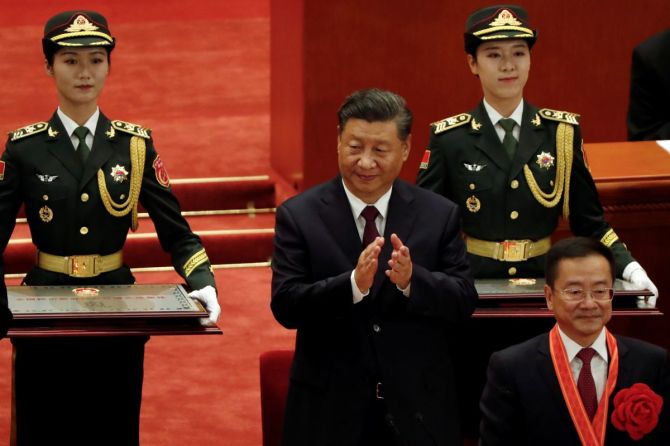
Aggressive action by China in Ladakh is not a mere flash in the pan.
The Chinese are not just interested in some barren rocks in the Himalayas, but wish to signal something bigger.
In the usual din and noise of democracy in India, a crucial difference between the present Chinese moves in Ladakh and previous crises is lost in transmission.
The 1967 Nathu La clash, in which China suffered major losses, was clearly a local affair. So was the Sumradong Chu crisis of 1987.
Closer to our time, the 2013 Depsang plains standoff that lasted 21 days, September 2014 Chumar face-off that lasted 16 days and 2017 Doklam crisis that went on for 73 days, can all be classed as 'local' initiatives.
Both India and China mobilised additional forces in aftermath of these events is also a given.
What sets apart the current face-off between India and China is that in the present case China mobilised large forces before the crisis!
The premeditation and the prior planning on the part of the Chinese just cannot be missed.
The Indian move of additional forces was a reaction to Chinese moves.
The scale of forces moved and timing show that this remains a major policy/strategic initiative by the Chinese, obviously approved at the highest level of decision-making.
While actively provoking India, China has signaled that it is moving its goal post from a multi-polar world order to a Chinese dominated one -- initially in Asia, and later in the world at large.
China has finally placed its ambition in the show window.
It wishes to be the Empire of the 21st century.
Prime Minister Narendra Damodardas Modi showed his acute awareness of the Chinese intention when he warned China from Ladakh that the age of aggression and expansionism is over.
The Chinese proposed project of a 100 km Kra Isthmus canal though Thailand to solve its Malacca dilemma is parallel to the US construction of the Panama Canal late in the 19th and early in the 20th century.
The Chinese version of the Monroe Doctrine for Asia that is being propounded would force Asian countries to open their markets to Chinese exports.
China is no longer a Communist country except in name; the Chinese Communist party is more on lines of the Nazi party, with socialism as a slogan.
Chinese nationalism is concealed under the phrase Socialism with Chinese characteristics, is another name for Han Nationalism.
China perceives that the West under the twin assault of COVID-19 and rising xenophobia is too weak to resist China.
It is further encouraged by United States President Donald J Trump's weakening of Western alliances like NATO and domestic turmoil in a divided USA.
It feels that the Boris Johnson-led Brexit has dealt a body blow to the European Union and considers the EU as a spent force.
China feels that its moment has arrived.

Ever since the COVID-19 pandemic broke out in February-March in Wuhan in China, the world has witnessed a major shift in Chinese policy towards its neighbours in particular, and the world in general.
After suffering initially, China appears to have got the virus under control within its territory.
At the same time it senses that the rest of the world, particularly its Western adversaries, have and continue to suffer grave economic and social consequences of the pandemic.
China feels its moment to become the world's numero uno power has arrived.
It feels that it has accumulated sufficient power to reclaim the lands that were part of it during its heyday.
It also wants to address its geographical weakness of the 'Malacca dilemma' through alternative land routes (the One Belt One Road project) as well as its 'string of pearls' strategy of acquiring ports in the Indian Ocean region.
It has found a technical solution of building up artificial islands in the South China Sea and then claiming the seas around it as its territorial waters as well as exclusive economic zones.
Her actions on the Indian border fall in a different league all together.
Here, the aim is less territorial and more economic and political.
China wants to heat up the border so that it can impose economic costs on India just as the targeted country is fighting a battle with COVID-19 induced economic recession.
Politically, it wants India to thus fail in this endeavour so that it is no longer a model for other Third World countries.
With its aggressive actions, China has put a question mark over Indian participation in fora like the Shanghai Cooperation Organisation, BRICS and the New Development Bank as well as co-operation on climate change and in G-20 fora.
In a sense, China is trying to make India less relevant in these multilateral forums including in the RIC or Russia-India-China dialogue.
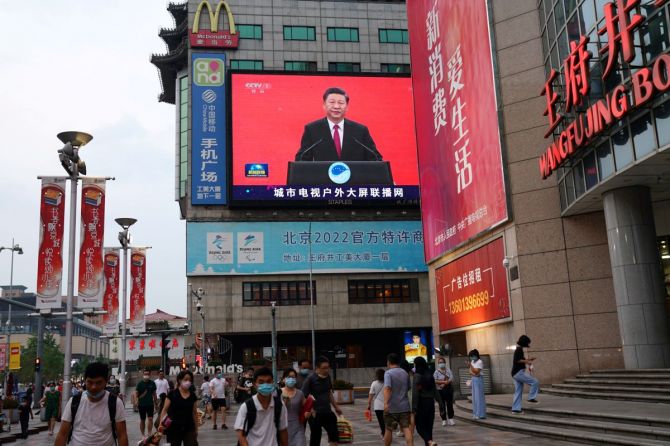
If China meant to use its mobilisation on the Indian border as an exercise in 'brinkmanship', then it has hugely miscalculated.
It is inconceivable that there will be bilateral visits and deals between India and China in any foreseeable future.
The danger for India is to fall in the Chinese trap and become a 'single obsession' country.
India has always felt that both India and China can rise in the 21st century.
By jettisoning the vision of a multilateral world in favour of a Han Empire, China has posed a major long term challenge to India.
India must stand firm against Chinese expansionism, but also keep a door open for future detente by making a clear distinction between the Chinese people and the current Chinese leadership.
The former are peace loving and share a cultural bond with India.
It is a tight rope that India has to walk and hope that better sense will prevail.
However, we have no option to seek allies and resist the Chinese Empire that in the 21st century wants to repeat the feat of the European empires of the 19th and 20th centuries.
Feature Presentation: Aslam Hunani/Rediff.com
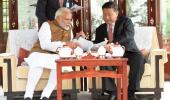
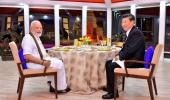
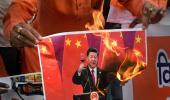






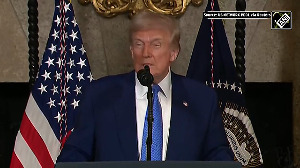
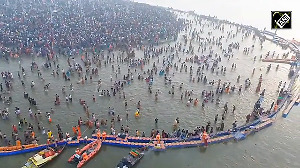
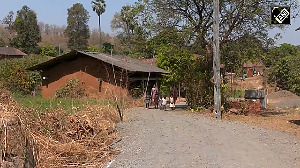
 © 2025
© 2025